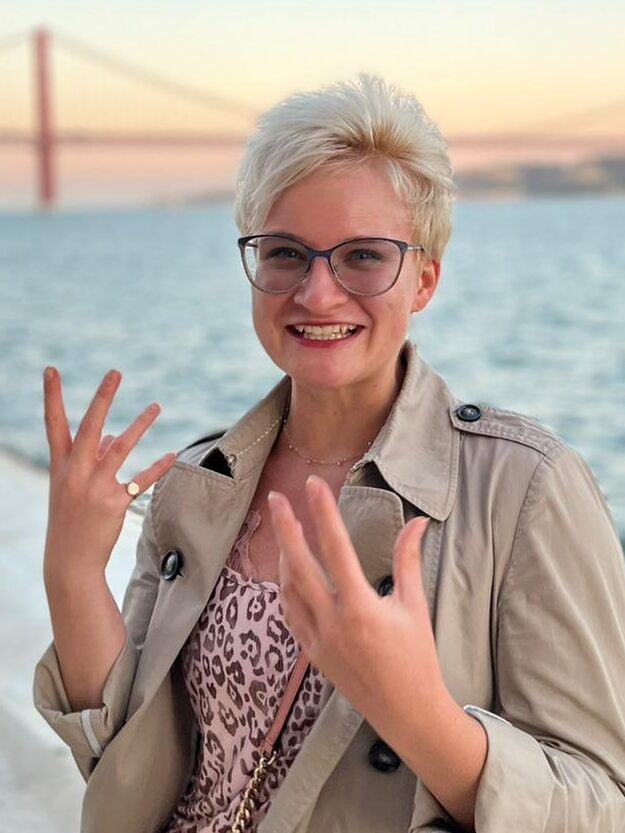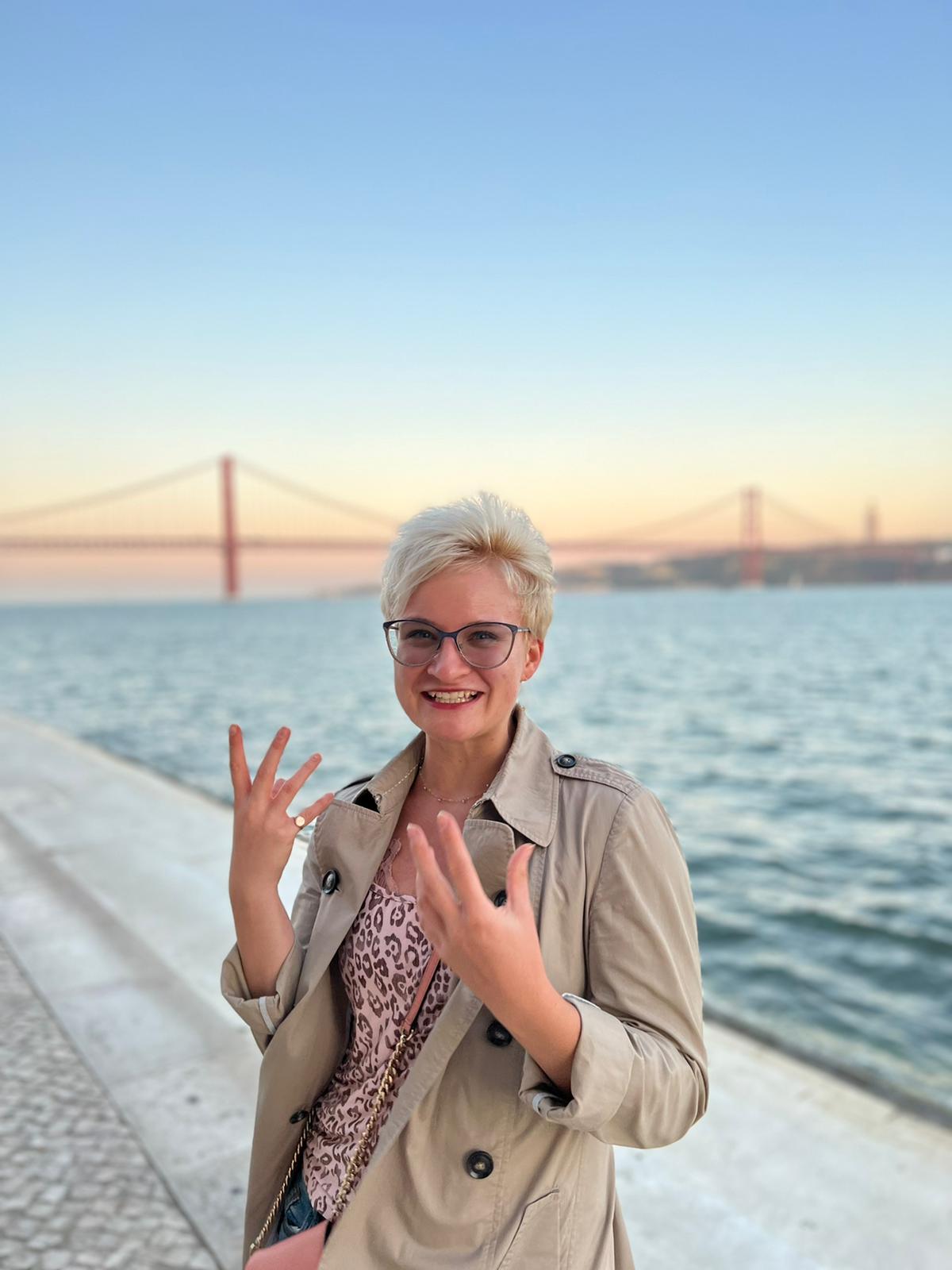Creating a strong foundation for my money to grow and support my lifestyle has been key to creating financial freedom and location-independence through my coaching business. A tailored digital nomad money management system is at the core of my freedom-based life.
It took me a good 5 years to figure this out, a lot of trial and error, and a few blocked or lost cards. Now, I am confident to share with you the systems I use to keep my money safe and growing as a digital nomad entrepreneur.
Developing strong financial literacy and an understanding of the systems that can and should legally and safely back your lifestyle is crucial to creating financial independence. However, it’s not the only aspect of it.
In addition to creating a strong money management system, you also need to create systems to grow your income and develop a mindset that supports the growth of your purpose-aligned, location-independent life.
For that reason, this article with deal with money mindset, money creation, and money management. While I strongly recommend starting with the mindset, you’re most welcome to jump straight to the section you need the most support in:
No time to read? Pin and save it for later:
Resources for how to manage money while traveling as a digital nomad are few and far in between. Many traditional banks aren’t set up for location-independent business owners. On top of that, the costs of international banking can rack up quite quickly, and there are specific tax and safety concerns digital nomad entrepreneurs need to take into consideration when managing their money internationally. Thankfully, there are banks, apps, and systems to make it all happen!
Personally, I’ve found that a strong, self-aware money mindset paired with a clear understanding of your digital nomad mindset is both fun to create and builds a strong foundation for purpose-aligned growth.
So let’s dive in.
Digital Nomad Money Mindset
While the digital nomad mindset is one largely rooted in freedom of money and location, a healthy money mindset typically comes from a sincere exploration of the past. And not engaging in that exploration will eventually hold you back from living out your free-spirited, digital nomad mindset.
Getting a handle on your beliefs around money is important. In my client sessions, I’ve found that most actually execute their strategies just fine, however, it’s a lingering money belief that’s holding them back from utilizing their strategies to create actual financial freedom. Here are just some questions I tend to ask my clients:
- What are your beliefs about money?
- Do you think of the rich as being [blank]?
- What emotions does $100,000 spark within you?
- Have your parents ever reacted to your income/salary/goals in a non-supportive way? If so, how, and how do you relate to that memory?
- If money was the person you’re dating, what would money tell me about you?
Acknowledge and heal your money identity
This is a good section for you to return to whenever you notice you’re stuck in business, or feeling burnt out.
For a long time, I believed that any money I made would be taken away. The belief, I realized, was rooted in how my family had handled money while I grew up. Early in my business, I made sure to spend any and all money I was making. Be it a large coaching expense or a fancy Hugo Boss coat, money in had to mean money out. And even though that led to trouble paying rent, it’s how I felt safe. It’s what my nervous system was used to.
Do you see how that money story was significantly impacting my ability to grow my business and live off it?
You, too, run unconscious money stories that are holding you back from managing your money successfully. Left untouched, these stories will prevent you from executing any good digital nomad money management system, including the one laid out below.
So, to begin with, I strongly recommend buying a bunch of money mindset books, such as the ones suggested here. Additionally, the below is a great, revealing exercise:
- Growing up, what did your parents teach you about money? (note down 5 things to start).
- For each belief listed above, note how this belief shows up in your day-to-day business actions.
- For each action, note down what you would like to change about that action.
- For each desired change, come up with one affirmation that you can lean into as you engage in that action the next time.
The above exercise is straightforward, but oh-so-powerful, as it reveals how your stories are running your business and moves you back into the driver’s seat.
Tap into Abundance
You are the average of the 5 people you surround yourself with the most. True words. Who and what are you surrounding yourself with? Are you reading articles about how to travel when broke or articles about how to create your first $1000 in your business? I invite you to get intentional about what you’re consuming, consciously tapping into abundance.
Any digital nomad money management system can either be based upon scarcity (‘I don’t have enough money’) or abundance (‘I have clear priorities and a plan to create more income’). A few things you can do to move out of scarcity and into abundance are:
- Adjust your language from “too expensive” to “not a priority right now” or “How can I create the money to afford this?”
- Listen to frequency music while working, specifically 524 Hz and 741 Hz music.
- Listen to money affirmation recordings, such as this one.
- Be intentional about the books you read and podcasts you listen to.
- Get clear on what your dreams and goals will cost, note down the cost, and create a revenue plan to make it happen.
- If this is your vibe, I strongly recommend integrating your work with deities, visualizations, and meditation into your money mindset routines.
Play to create financial freedom
I often ask clients, “What’s the game you’re playing?” Are you playing to become location-independent? To become financially free? Or to perpetuate old, generational money patterns? Are you in this to survive or to thrive?
If you’re in this to survive, chances are you’ll reach for the bare minimum in your business: If you need a minimum of $30K to survive every year, you might be creating 30 or 40k. Even if you’re saying to yourself that you want to create millions.
On the other hand, if you’re in the game to thrive, your goals become supercharged with your embodied belief that you actually can, and will, thrive through your business. So, a few clarifying questions are in order:
- What does financial freedom mean to you?
- What is your timeline to achieve financial freedom?
- What are you willing to give up in the name of that pursuit? (old beliefs, habits, expenses)
- What resources do you need to achieve your goals? What’s keeping you from getting these resources?
Entrepreneurial Money Creation for location independence
The second step in increasing financial freedom through digital nomad entrepreneurship is to create a game plan for creating money: consistently, purposefully, and enough of it.
Not doing so can turn out to be a detrimental mistake for your freedom journey.
To me, entrepreneurship, a digital nomad mindset, location independence, and financial freedom go hand in hand. I’ve not once met a digital nomad who loves the 9-5 grind and follows someone else’s idea of success. (Have you?).
There are two main things I want you to be thinking about when it comes to growing and managing your money while traveling: Your financial needs and aspirations, and your income plan.
For more reading on online business growth strategies, read on:
- Habits of a Digital Nomad Entrepreneur: Earn while Traveling
- The Key to Creating a Successful Freedom Based Business & Life
- How to get Coaching Clients without Social Media and Sleaziness
Determine your baseline and visionary income
Part of your digital nomad money management plan should be knowing what it is you’re managing. At the same time, projecting and tracking your income is a significant business maturation principle.
Traveling through digital nomad hubs like Bali, I hear way too many “I’ll just wing it”s and “I don’t want to disappoint myself so I don’t set goals”s sentiments. If you have a big vision for life and biz, you’ve got to be wiser!
In order to create a revenue and expense plan that makes sense for you today, and for your goals tomorrow, you’ve got to get clear on your goals. And these goals should come in two sizes: minimum/realistic and aspiration.
Your minimum goals help you eliminate the “moving goalpost”. Once you’ve got this money billed, saved, or in the bank, you know you’ve accomplished a truly important income goal: one you know will cover all of your expenses, personal and business.
Meanwhile, your aspirational goal supports your bigger goal of financial freedom through entrepreneurship. This is the goal that clarifies your ideal lifestyle, your business aspirations, and what it will take to get there. This is the goal I want you to base your income decisions on.
That said, you want to determine your income goals and project your income in three different ways:
- Absolute minimum income required (this is crucial if you’re still in the first two years of biz and haven’t stabilized your income yet)
- Realistic income based on last year’s revenue.
- Stretch income goal based on your business goals and strategy.
Now, as you grow wealth, you want to be living somewhere around 2, but you want to be SELLING and GROWING towards your No. 3 income goal!
Find this valuable? Save and share the article now:
Diversify and prioritize your income streams
No, your one signature offer won’t lead to financial freedom. Neither will it create the impact you might be after with a purpose-aligned business. It’s all the rave on the Internet: signature offers. And I say, begone with them!
It makes little sense for you as a business owner to put all your eggs in one basket. The market moves way too fast to make a single offering viable in the long run.
Additionally, having only one income stream restricts your lifestyle in ways you likely don’t want. I used to only sell 1:1 offerings which were not conducive to what I imagined to be a financially free lifestyle. Now, I have this blog, VIP days, and a few courses in the pipeline. By diversifying my income streams, I have aligned my strategy with my purpose and, in turn, increased my income.
Finally, having only one signature offer loses you clients and, with that, money. What if your ideal client can’t afford your signature program, or the timing isn’t right for them? Unless you have a smaller offer, or one they can do asynchronously, they would have to buy from another provider. Too bad for you! Determine your client’s growth journey and provide value at every juncture of that growth.
That said, don’t build out multiple income streams at once. Start with one. Once that is up and running, add one more. And so on and so forth.
Online business growth strategies can get confusing – where is the biggest return on investment, and what will likely bring in my first client, the fastest? How do you create that offer, and how will you enroll clients in this?
If you’re ready for some homework, you’re welcome to download my free guide to create purpose-aligned business goals. And, if you’d like support with this, consider enrolling in one complimentary coaching session with me where we can outline your game plan. This might be all you need – or we can discuss to keep going, as well.
Digital Nomad Money Management for Entrepreneurs
With your money mindset strengthened, your income goals clarified, and your money growing, we can now move into your digital nomad money management plan. This plan has helped me and my clients save money while traveling, grow my income location independently, and grow my investments and savings.
Right off the bat, I’ll share with you that I use Wise Bank as my main finance account, an Amex, an expense tracking app, and a spreadsheet to project my income and cash reserves. This system, and utilizing software that exists is a game changer. So don’t shy away from it.
Create a Budget: project and track income and expenses
Inevitably, when you travel your expenses will fluctuate more than if you were to stay in one place. Likely, your cost of living in Chiang Mai is a fraction of that in London. Plus, damn-currencies.
To keep track of it all, I set up an annual budget via a spreadsheet to track my cash in and out by month and by category. That way, I:
- Know what my cash is up to at any point of the year, based on income and expenses.
- Can track my expenses by envelop system and determine my budget with a clear mind ahead of arriving in a new country which keeps me from emotional-over-spending.
- Make informed investment decisions for big expenses like coaches, professional brand, etc.
Email me at [email protected] or leave a comment below if you’d like access to my tracking spreadsheet template.
Set your digital nomad banking up for success
Digital Nomad finance begins with having the right banking systems. You want to be set up with cards and banks that (sort of) understand your lifestyle and won’t send a snail mail to your parents’ house every time you change countries or get a billing from a new country. At the same time, you want functioning apps to go with your system and safety.
Personally, I’ve found the nearly perfect system since signing up with Wise Bank, formerly TransferWise. That bank is made for remote workers, location-independent entrepreneurs, expats, and digital nomads. I use Wise for my personal banking and for my business banking and boy, do I save a lot of money and headaches on it.
As for digital nomad banking digital nomad money management, here are the four areas to focus on:
Incorporate as a business to comply with international taxation laws
Honestly, being a freelancer without an LLC or similar is a waste of tax money. The negative effects of not being (incorporating, billing, and acting as) a business only compound for digital nomad entrepreneurs.
I can’t tell you where or how to incorporate. This depends on your business model, your citizenship, and other factors. As a nomad, you may be able to create a business structure that is favorable to your tax requirements. So, speak to a lawyer, accountant, or see out resources such as Nomad Capitalist.
Determine your best digital nomad banking and payment options
Domestic banks, even traditional international banks, aren’t typically set up for our lifestyle and can turn digital nomad money management into a nightmare. I won’t name my old bank here…suffice it to say that a big brand name truly only serves the bank, not me and my lifestyle.
I already mentioned my admiration for Wise Bank and their flashy green travel card and business card. That said, you want to be on the lookout for a bank that:
- Allows for international spending with no foreign transaction fees
- Multi-currency accounts and native multi-currency transfer ability
- A great App and customer support that is highly functional and secure
With these three bullets checked, you should be good to go for your international banking. Depending on the bank you choose, you may have to set this up while you’re in your country of citizenship.
Get a (business) credit card with generous points and no conversion fees
Having a credit card to pay your larger expenses with is the best way to multiply your money through points and, most importantly, protect your expenses. Personally, I use Amex. Look for a card that:
- Has no conversation fees on foreign transactions
- Allows ATM withdrawals without a fee (at the very least, with a standard fee, not a percentage)
- Has a great reputation for their customer service (Amex does!)
- Has an annual fee that can be offset through expenses, points, or rewards (ie, the card saves you more money than it costs)
Maintain a bank in your country of citizenship
This is crucial! Maintain one bank account in your country of citizenship. This can be different from where you incorporate your business, and you can simply note down your parent’s address for the bank. Having this account, in most cases, won’t impact your tax requirements. However, you’ll more than likely need a domestic bank for certain insurances (liability insurance, eg) and investment funds.
Most platforms such as Fidelity require a domestic bank in the country you’re a citizen in. Similarly, maintaining your domestic bank might come in handy when and if you open a high-yield savings account.
Optimize your expenses based on your goals and priorities
Yes, Digital Nomad money management isn’t purely about growing your income. It’s also about creating an expense plan that reflects your goals and your priorities. Remember, financial freedom is created through mindset, income, and management. The last part of this has to do both with the money you spend and the money you keep.
Since the idea of financial freedom is typically rooted within a lifestyle, I’d encourage you to create a budget that lets you spend lavishly on your priorities and encourages you to be nimble on the things that don’t matter to you.
For example, I have a huge grocery budget but a tiny eating out budget, because I prioritize eating healthily over fancy dinners. Similarly, my coaching budget is bigger than my housing budget because personal growth is a priority to ME.
Hopefully, you can tell that there is no right or wrong here. The mistake you might be making, however, is to not be intentional about your budget’s subcategories and your spending within them. Saving money as a digital nomad is not a scarcity mindset. It’s a direct application of the above chapters: determining your goal and creating an action plan to attain said goal.
If you want x amount of dollars within 5 years, you may need to cut your expenses now in order to build up the appropriate investments and savings.
Create a Freedom fund: save, invest, goal-setting
Finally, while it’s all great to be living in the moment, what’s really awesome is to be truly financially free in every moment of your life.
The way to create this freedom, ultimately, goes through the creation of freedom funds: savings, investments, and smaller goal-aligned saving buckets.
You want to develop a savings account with at least 6 months worth of expenses in it. While you can keep this in a separate account with your bank, you can also put that money to grow by opening a high-yield savings account. Just remember that this money is meant to be for emergencies, so it must be readily accessible.
Second of all, you want to open an investment account. Depending on your income and means, you want to add a minimum of 10% of your monthly income to your investments. While investing isn’t rocket science, I’m not qualified to teach this. Ramit is. Your investments are the key driver in creating financial freedom as they literally determine at which point you’ll be able to retire. Put differently, the higher your investments are, the less your daily income matters.
Finally, create sub-savings accounts for vacations, your new laptop, or a coach. Adding to it until you’ve hit your goal does two things: It sends a clear signal that you’re prioritizing what’s important to your heart and mind. It also provides you with immense satisfaction whenever you get to withdraw that money to spend it.
One of the biggest mindset shifts that helped me prioritize my savings and investments was brought about by Ramit’s book, where he teaches you how to put investments and savings first in your monthly spending.
Concluding
The digital nomad dream, to me, is so much more than the lifestyle of living nomadically. It’s a dream of freedom, independence, and one of forging a new path for yourself, your family, and your community. Creating aligned money management systems and developing a strong money mindset is foundation to realizing that dream. Don’t shy away from it. Embrace it as part of the adventure.







It’s so important to consider money management at any time. Saving and planning for full time travel is in our plans.
Fantastic to hear!
Thanks to your tips and questions, I am sure this post will be very helpful for people trying to navigate savings and money management.
This is awesome! I’m looking at taking a gap year and I’ve started brainstorm of ideas to turn that into becoming a digital nomad but I’ve no idea where to start. This is giving a better idea of what I might be missing – had no idea I might need to set up an LLC!
Woohoo! What are you looking to take a gap year from? What are your ideas for how to become a digital nomad? This article might help you as you continue your explorations: https://wayofthefounder.com/habits-of-a-digital-nomad-entrepreneur-earn-while-traveling/
Thank you for all the amazing tips for savings and money management as a digital nomad! This will definitely come in handy.
Love the sound of that! And you’re so welcome! <3
When I was younger, I dreamed of a nomadic lifestyle. However, I now love being rooted somewhere and travelling periodically. These are really good tips for financial management and taking the nomadic lifestyle seriously. Who knows, maybe someday I’ll change my mind again!
Oh Melanie, I hear you! Sometimes, I wish for nothing more than sleeping on a mattress I hand-picked. There are definitely perks to being settled. AND, there’s a spiritual inner journey that the nomadic lifestyle offers me that I just don’t feel I’ve completed yet. Love that you’ve found your place and what works for you.